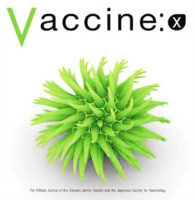
Link to publication: https://pubmed.ncbi.nlm.nih.gov/38679512/
Full citation: Dorjee K, Namdon T, Topgyal S, Gyatso U, Tsundue T, Dolma T, Kumar V, Lhadon D, Yangkyi T, Khachoe T, Dorjee S, Sadoff RC, Peters D, Gupta A, Paster Z, Chaisson RE, Phunkyi D, Sadutshang TD. Association between Covishield vaccine and menstrual disturbance. Findings from a cross-sectional study among participants of Zero TB cohort in India. Vaccine. 2024 Jun 11;42(16):3572-3577. doi: 10.1016/j.vaccine.2024.04.063. Epub 2024 Apr 27. PMID: 38679512.
Abstract
Background: The association between COVID-19 vaccines and menstrual disturbance is unclear.
Methods: An in-person cross-sectional survey among female members ≥ 18 years enrolled in an ongoing Zero TB prospective cohort in Northern India who had received one or two doses of covid-19 vaccine was conducted to study the characteristics and association of menstrual disturbance within six months of receiving Covishield.
Results: Between June 29 and September 5, 2021, 339 females ≥ 18 years of age were administered the survey. Median age was 30 (IQR: 22-39) years; 84 % were between 18 and 49 and 16 % were ≥ 50 years old. There were 152 college students, 27 healthcare workers, and 160 nuns. Forty-two women (12 %) had received one dose and 297 (88 %) had received two doses of Covishield. Overall, 66 (20 %) women reported experiencing menstrual disturbance after receiving Covishield vaccine. The problems included early menstruation: 6 % (n = 19/339); late menstruation: 4 % (n = 14/339); and heavier bleeding: 5 % (n = 17/339). Disturbances lasted for less than seven days and cycles normalized in 1-3 months. There was no post-menopausal bleeding. There was no significant difference in menstrual disturbance based on receiving one vs. two doses of Covishield (OR: 1.58; 95 % CI: 0.55-4.57; p = 0.381). History of SARS-CoV-2 infection was not associated with the development of menstrual disturbance among the vaccinees (OR: 0.63; 95 % CI: 0.24-1.73; p = 0.379). Presence of emotional disturbance at baseline (OR: 31; 95 % CI: 3.52-267; p = 0.002) or previous history of dysmenorrhea (OR: 41; 95 % CI: 8.7-196; p < 0.001) was associated with menstrual disturbance in the vaccinees, indicating their potential to confound or bias study results.
Conclusion: Menstrual problems were reported by Covishield vaccinees, but they were minor and reversible within three months and do not constitute a ground for vaccine hesitancy. Studies designed to assess causal link taking care to avoid selection bias or confounding are needed.
Keywords: Covid-19 vaccine; Menstrual disturbance; Women’s health.
Copyright © 2024 Elsevier Ltd. All rights reserved.

